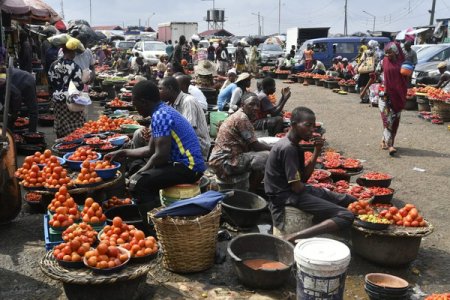
In his first year, President Tinubu's efforts to combat food inflation have faltered, with prices soaring dramatically. The cost of tomatoes surged by 320% from ₦547 to ₦2,302 per kilogram, and overall food inflation reached 40.66%, highlighting ongoing challenges in Nigeria’s economic landscape.
When Bola Tinubu assumed the Nigerian presidency in May 2023, food inflation was a significant challenge left by his predecessor, Muhammadu Buhari. At that time, the National Bureau of Statistics (NBS) recorded a food inflation rate of 24.82%. Tinubu, acknowledging the severity of the issue, promised robust agricultural reforms to curb the crisis.
In his inaugural address, Tinubu outlined plans to establish commodity exchange boards, improve storage facilities, and create agricultural hubs across Nigeria. He aimed to stabilize food prices and support farmers, benefiting consumers with lower food costs.
Despite these ambitious promises, the reality one year into Tinubu’s presidency tells a different story. Food inflation surged dramatically, reaching a staggering 40.66% by May 2024. This increase marks a significant rise from the previous year’s rate, exacerbating the cost of living for many Nigerians.
The price of essential food items has soared. Notably, the cost of tomatoes has risen from ₦547.28 per kilogram in June 2023 to ₦2,302.26 in June 2024, reflecting an alarming 320.67% increase. Other food items also saw significant price hikes, with some experiencing inflation rates exceeding 200%.
The current economic climate underscores the ongoing challenges faced by the Tinubu administration in managing food prices and implementing effective agricultural policies. As Nigerians grapple with soaring costs, the government's efforts to mitigate the crisis remain under intense scrutiny.
Meta Description: Discover how food prices, particularly tomatoes, have skyrocketed under President Bola Tinubu. In one year, tomato prices soared from ₦547 to ₦2,302, reflecting a dramatic rise in food inflation.



![Today's Naira Rate [12-12-2024]: Naira Slips to N1,720/$ as FX Rate Gap Widens by N175](/data/attachments/211/211289-4523aaaef2728cb1682e6b0e5d6eacb3.jpg?hash=hFfFcRmkeL)

